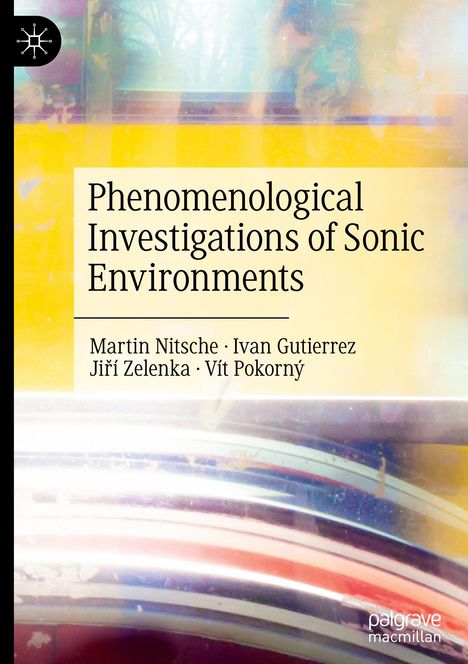Martin Nitsche: Phenomenological Investigations of Sonic Environments, Gebunden
Phenomenological Investigations of Sonic Environments
(soweit verfügbar beim Lieferanten)
- Verlag:
- Springer, 08/2024
- Einband:
- Gebunden, HC runder Rücken kaschiert
- Sprache:
- Englisch
- ISBN-13:
- 9783031659201
- Artikelnummer:
- 11941245
- Umfang:
- 176 Seiten
- Gewicht:
- 348 g
- Maße:
- 216 x 153 mm
- Stärke:
- 15 mm
- Erscheinungstermin:
- 13.8.2024
- Hinweis
-
Achtung: Artikel ist nicht in deutscher Sprache!
Klappentext
Phenomenological approaches to sounds, noises, voices, and music traditionally privilege methods that center visual perception. This book aims not only to phenomenologically describe sonic environments, but also to develop an audition-centered phenomenological methodology to enable this task. "Sonic environment" is this book's term for the acoustic shape of human life-environment, which is multisensory and does not exclude visual, tactile, olfactory, and gustatory sensations connected with sounds or their sources. Sonic environments (in so far as they are lived) are not composed of separate sounds, but created by ¿sonic phenomenä ¿ i. e., lived (real or imagined) experiences with sounds, noises, voices, and music. Just as phenomenology traditionally privileges the visual over the audio, phenomenology thematically prefers listening to a voice or a music over less articulated sonic experiences (i. e., sounds without an obvious meaning, melody, or rhythm).In this respect, the book not only provides missing phenomenological descriptions of sonic environments, but also redefines phenomenological methodology with respect to acoustic perception.
Biografie (Martin Nitsche)
Martin Nitsche studierte Wirtschaftsinformatik an der privaten Fachhochschule Wedel bei Hamburg. Seit 1990 ist er als Unternehmensberater tätig, seit 1996 bei der Experian Gruppe (ehemals CCN). Zur Zeit ist er bei der microm Micromarketing Systeme und Consult GmbH als Mitglied der Geschäftsleitung für die Beratung und die Realisierung der Projekte verantwortlich. Er ist Sprecher auf Veranstaltungen im In- und Ausland rund um das Thema Direktmarketing und Autor verschiedener Fachartikel und Bücher, darunter das im Ueberreuter Verlag erschienene Standardwerk zum Thema Micromarketing.

